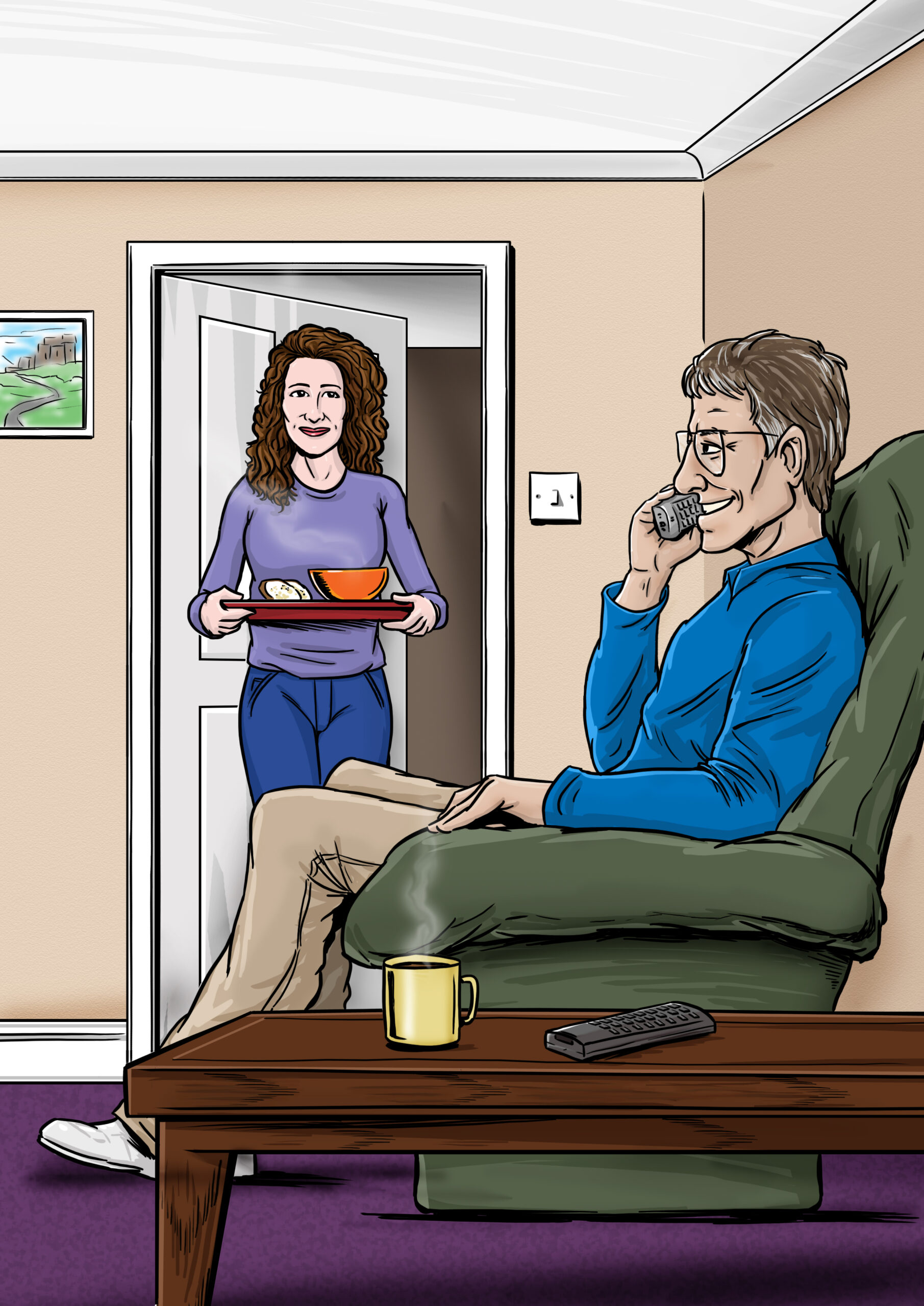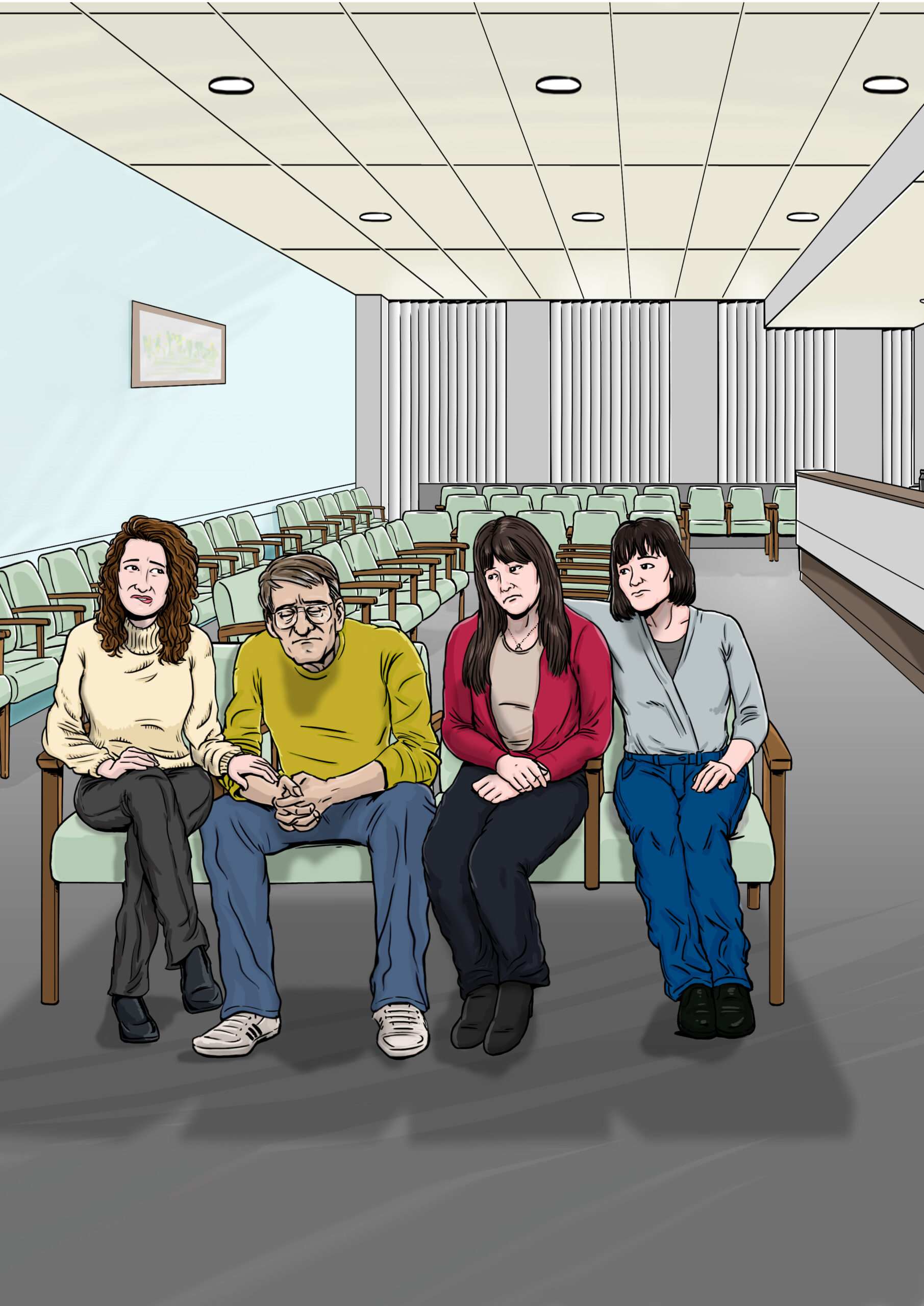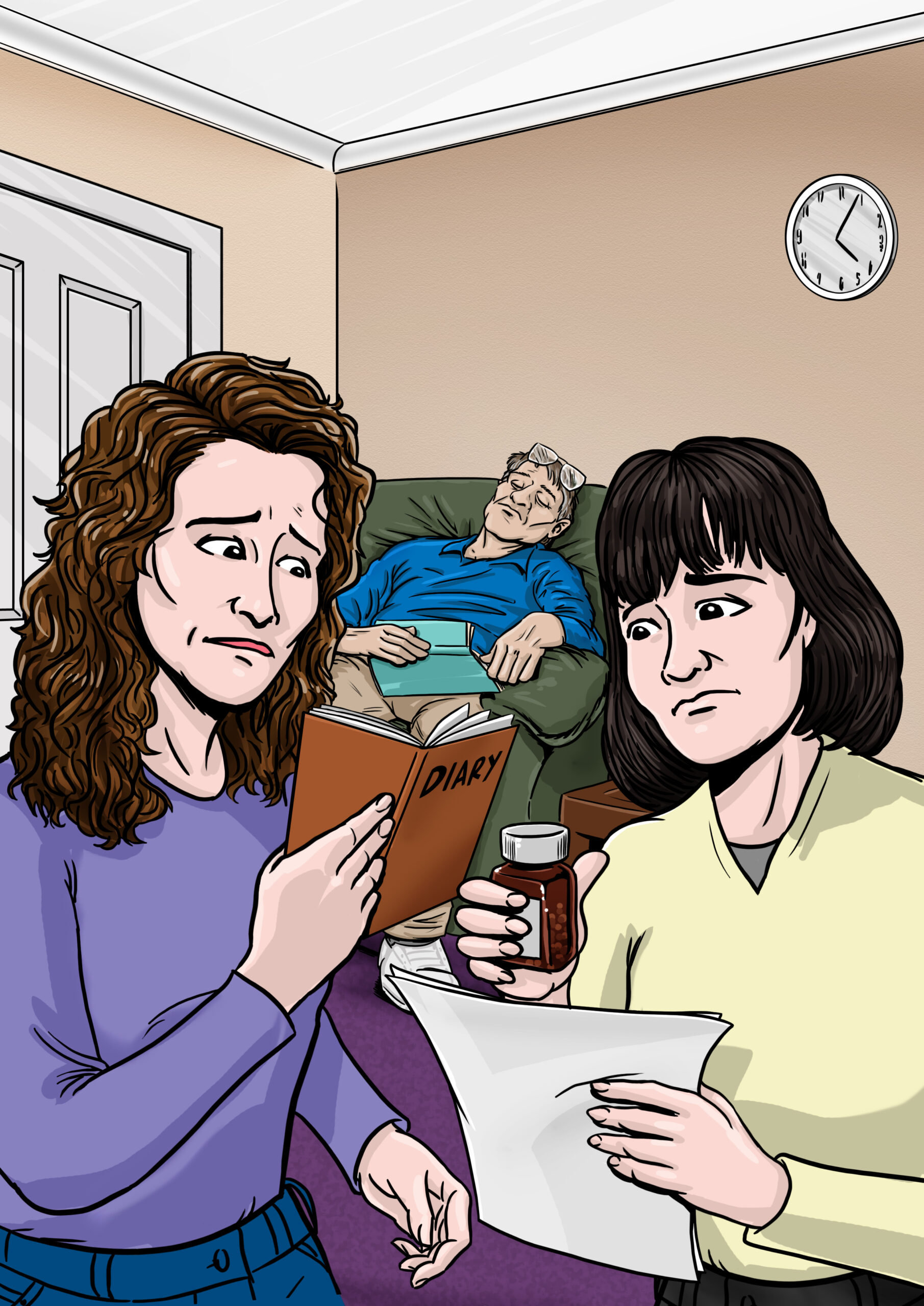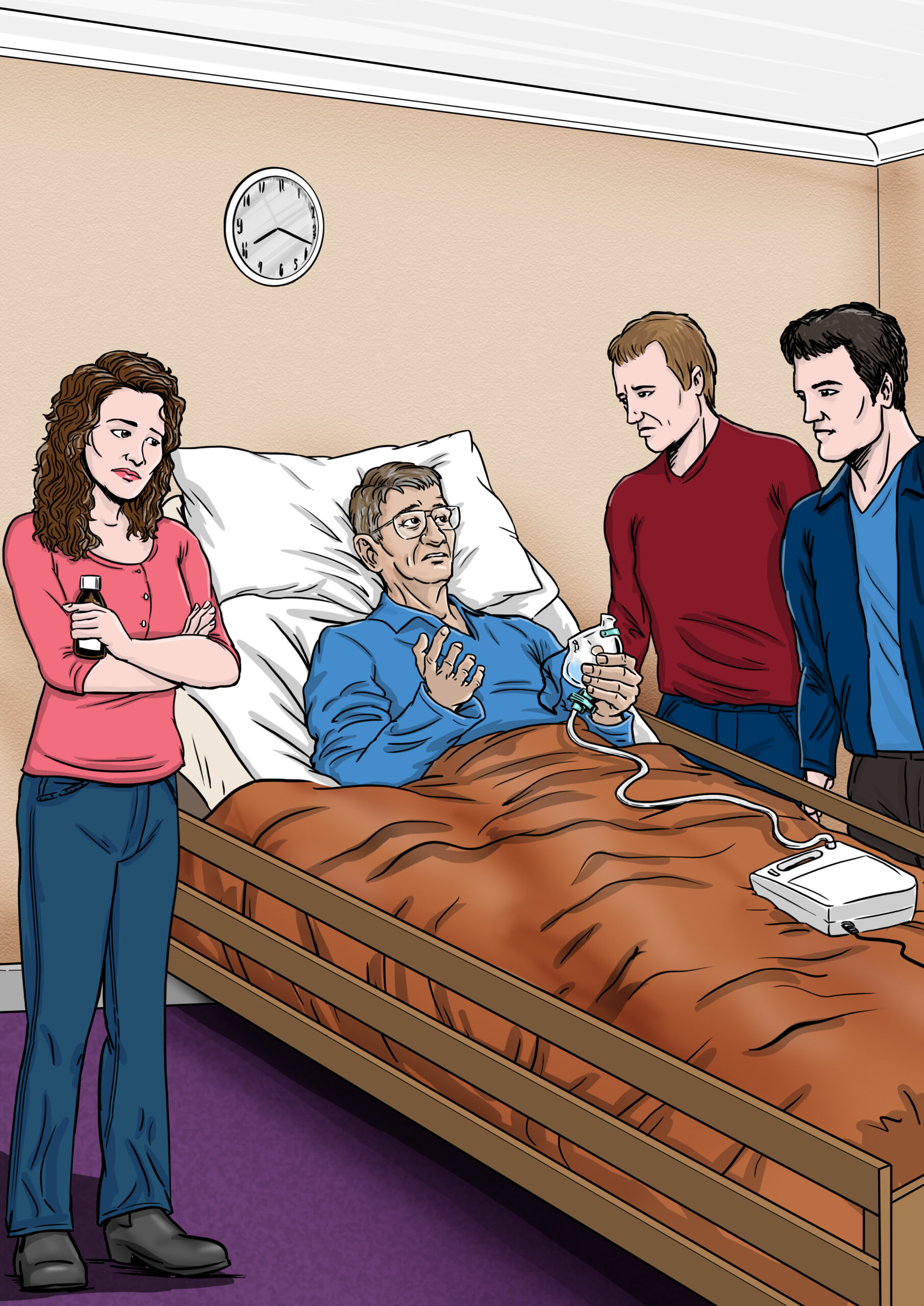
Financial Compensation And Benefits
Exposure to asbestos fibres can lead to a number of serious diseases. It may be possible to pursue a civil claim for damages against an employer if your exposure was in the workplace and you felt it was due to the negligence of your employer. The Department of Works and Pensions (DWP) also runs schemes under which you may be entitled to financial compensation. The benefits area can be complicated so it is advisable to speak with a specialist benefits advisor and we provide further information and signpost accordingly. Please call 01495 272479.
It is important to make a note of the date when the diagnosis of an asbestos related disease has been made. If you intend making a claim against an employer then you have three years from that date to commence court proceedings. If it is not done within that time frame then you may lose the right to pursue the case.
If a victim dies within 3 years of the first diagnosis or discovery of an asbestos related disease the personal representatives of the deceased will be given a further 3 year period from the date of death to commence a court action.
If the time limits are not followed then it is very rare that the court will allow discretion to over ride time limits.
Professional, legal advice should be sought very early on.
Choosing the right Solicitor
A specialist firm of solicitors is a must if you are going to pursue a claim for any asbestos related disease. It can make the difference between making a successful claim or not. Not all solicitors have the necessary knowledge or expertise. Here at AASC we can provide information on appropriate solicitors – do get in touch. 01495 272479
The right firm of solicitors:
- Will not charge you for dealing with the claim.
- Will have valued experience and expertise.
- They will visit you at your home at your convenience if that is what you prefer.
- Will keep you updated on the progress of the claim.
- Will thoroughly research the employment history of the person affected by the asbestos disease.
We understand some of the difficulties and challenges that can arise following diagnosis. If you have been diagnosed with an asbestos related illness, we recommend that you also seek specialist legal advice. We recognise that asbestos disease law is a very distinct area of the law and that the prospect of seeking legal advice may be daunting for some. Therefore, we have provided below a list of solicitors in Wales who are specialised in asbestos disease law and have the experience to handle your case with expertise and sensitivity. Each of the firms listed below offer free, no obligation advice and provide coverage throughout Wales whilst also being committed to helping to increase support and awareness for patients and carers in Wales through our Sapphire Scheme.

The Helping Professionals
A health, social care or legal professional can help you to cope with your diagnosis at a time when everything seems confusing. It may be that you feel that you are not ‘clicking’ with the professional to whom you have been referred – this may inhibit your understanding of your condition and you may decide not to turn up for your appointments. If there is a genuine clash of personalities or some other valid reason you need to let this be known, you deserve the best care possible.
General Practitioner
Your first port of call if you are feeling unwell, the General Practitioner or your family doctor will have a developed understanding of numerous health issues and may not have the specialisation in asbestos related diseases. You will need to draw the attention of the General Practitioner to the fact that you may have been exposed to asbestos either first hand in a work setting or second hand through being close to someone who worked with asbestos.
Consultant
This is a qualified doctor who has further enhanced his career to specialise in a specific area; she/he will usually have a team of doctors in their team. The General Practitioner may refer your case to the Consultant to make a diagnosis after several tests. The Consultant will be the lead person looking after your health once you have received your diagnosis.
Nurse Specialists
Rebecca Weston-Thomas joins the Mesothelioma UK team. Rebecca has been appointed Meso UK new Clinical Nurse Specialist to provide care and support for mesothelioma patients in Wales.

A nurse specialist is a professional who has undergone extended clinical training and education in a specific health area. Someone diagnosed with an asbestos related disease may be referred to a respiratory nurse, lung cancer nurse specialist, an oncology nurse specialist or/and a MacMillan Nurse specialising in palliative care. Such nurses have received training to enable them to provide the best care possible in their chosen field; their knowledge base should exceed those who are more general nurses. They will be a valuable resource for clinical information for both patients and other members of the nursing team. Nurse specialists may be employed in the NHS, the voluntary or private sector.
Benefit Advisors
Being treated for an asbestos related disease is free – but you may experience financial difficulties in coping with everyday costs of living. You will need to receive appropriate help and advice. Specialist benefit advisors should have a comprehensive understanding of the range of benefits to which you may be entitled – it can be very confusing.
Solicitors
It is important that you have the right solicitor supporting you. It is best to select a team which has specialist knowledge and experience in the field of asbestos related diseases. You should not be charged for the help and advice given by the solicitor working on your behalf. They should visit you in your home to go through issues to do with your case and can help ensure that you are receiving the correct benefits.
Location
Are you able to reach your appointment easily? Is the travelling to the office of the professional getting you down? Have you asked if a home visit could be done? Do you need to personally meet with the professional every time – is telephone support an option, can the professional phone you? Do not allow the location of appointments become a major obstacle

Mental Health
Receiving a diagnosis of any serious illness will have a major impact upon you – nobody expects you to be ‘superman/woman’ and to take the news in your stride – you will experience a number of emotions. Having a diagnosis of mesothelioma means that you will have been hit with some hard news. Your life span may have suddenly been curtailed. You and your family, if you have one around you, will initially be in a state of shock – questioning yourselves as to whether you heard right!
As you and those close to you come to terms with the diagnosis – do remember that although you may feel alone – you are not alone! AASC and others are here to offer help, support and a listening ear to help you cope with the range of emotions that you are going through. You may find yourself going through stages of grief as you feel that your life is being taken away from you.
The five stages of grief are:
- Denial
- Anger
- Bargaining
- Depression
- Acceptance
Denial and Anger
It is quite normal to feel angry and to be in denial on first hearing your diagnosis of mesothelioma and to look for someone to blame – “Why me?” As the disease progresses you may come to believe that you are a burden on your family and you begin to feel guilty that you cannot contribute to looking after your family, or that you can no longer hold down paid employment. You will also build up anger feelings as you know that the illness was more than likely caused by an honest day’s work.
Bargaining
You may begin to try and make bargains in a vain attempt to halt the progress of the disease so for example, you may say that if you did something differently or lived a changed life in the hope that the illness will go away. This is quite common as we try to make sense of why we have been struck down by a terrible illness.
Remember that the illness is not your personal fault and not your choice, and that you have not let anyone down, but you need to talk about how you are feeling and not bottle up your thoughts.
Depression
You have been diagnosed with a life limiting illness – of course you may become depressed! You could experience mood swings, huge sadness, tiredness and feel a great emptiness within yourself. If these feelings continue for a long time you must alert your family doctor, consultant, specialist nurse or social worker, give us a call at AASC. Talk to them – share your feelings. It may be strategies will be put in place to help you cope with whatever is dragging you down.
Acceptance
You and your family should reach a point when you accept your current state of health. You may experience fear of death or you may recognise it as being inevitable. Spend your time thinking fondly of the good times in your life and if there is something you would like to do see if it can be arranged for you to do it. Please call Jo, our support officer who is there to listen and to chat with you, with warmth, compassion and in confidence.
Be prepared, make sure all your paperwork is in order. Make sure that your will is up to date. It may be that you would like to raise awareness about mesothelioma and how it can be caused and get in touch with others who are going through the illness so that you can give support to each other.
Once you have made sense of your emotions and reached a better understanding of your illness, your quality of life should be improved.
Practical issues
Practical issues may be easily resolved so that they do not prey on your mind.
- Getting to your appointments and overnight stays.
- Financial concerns.
- Concerns about paid work.
- Concerns about getting children to school.
- Making meals and buying and preparing food.
- Help with daily activities.
- Language and cultural differences – the language of those around you may be different to yours.
- Getting help for caregiver and maybe for other family members – you may have elderly dependents.
Making connections with others and sharing your concerns with AASC may help to resolve these practical challenges. Unless you tell someone nobody is going to know.
Existing emotional problems
If you are diagnosed with a life limiting illness such as mesothelioma any existing personal problems could be heightened. Such as:
- Severe depression
- Panic Attacks
- Dementia
- Anxiety
- Substance misuse
- Personality disorders
There are professionals available who should be able to help you cope with any magnification of these difficulties.

Wellbeing for Carers
Being a carer of someone with an asbestos related disease and especially mesothelioma can be emotionally and physically difficult. As a carer you will need to make sure that you keep strong and and calm – try not to ‘lose your cool! Watching someone suffer is a major challenge and tears could flow easily. Your strength and encouragement as a family carer will be needed to help the patient cope with the illness.
So it is important that you look after yourself.
- You may have to learn how to provide the care but you cannot give the care 24 hours a day you WILL need some breaks.
- You may be feeling a bit stressed, think about what you enjoy doing and see if you can still make time to do this during the week.
- Spend some time away from the house and ‘your patient’, do not feel guilty about this – when you come back to the patient you may feel a bit more energised.
- Get as much information as possible about the illness, talk to the nurses and doctors ask them questions. Try to speak to others, who have been on the same journey as you, get in touch with us at AASC.
- Taking some form of exercise is a great antidote to combat stress. It can boost your energy. Just some walks lasting around 10 minutes will help. You will get some fresh air and be reminded that there is a life beyond ‘the sick room’.
- If you are lifting, moving or physically supporting your patient – you need to learn how to do it properly otherwise you may incur a back injury which can be very painful! You can receive free instruction on how to ‘manually handle the patient’ – get in touch with AASC for information and contacts.
- Try to eat healthily – it will be too easy to nibble on biscuits and to skip meals – so you may need to plan and get organised for shopping – online shopping with supermarkets delivering to your house can be a great help. If people are keen to do something rather than cakes maybe ask for a savoury meal like a stew or curry, or basket of fresh fruit. Though cakes are delicious in moderation!
- Ask family and friends to help out – they want to help – do not wear yourself out. Sitters can be arranged – contact AASC for details.
- You need to make sure that you get enough sleep – lack of sufficient rest could make you irritable.
- If you do not feel comfortable talking about how you feel with family members – share your feelings with us at AASC – it will be a start to helping you cope.
- We aren’t all ‘natural carers’ – your ‘patient’ deserves the best care and you have not failed if you cannot do it all yourself – asking for help is a plus!






